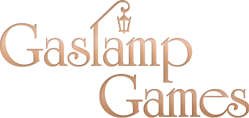In which David rambles about why Caddishness is a character attribute in Dungeons of Dredmor
I was listening to some podcast on RPG design a while back, I forget the name of it (killer opening, eh?), and there was a line of thought brought up that went something like: “What is your RPG about?” “Hope.” “Why isn’t that a stat in the game?”
And this struck me: A game is about the mechanics of the game, regardless of what overt theme is overlaid in stilted cut-scenes. The optimal gameplay path is the message.
(Granted though, there are varying definitions of “optimal” which is a whole other discussion.)
So in some sense D&D and all it’s offspring, legitimate or otherwise, are about having a high STR or DEX or INT or whatever and finding lots of gold — powergaming is built into the system, so of course people are going to do it. What’s this to do with the moral character of a hero? Not much, except maybe choosing the blue dialog options rather than the red ones (and you’ll probably be rewarded with more game mechanics power for the narrative’s designated “good” path anyway, ala Bioshock). When a designer puts grooves in the ground, that’s the rut people are going to fall into. Not that running in this rut can’t be fun, I’ve certainly played Diablo; Being a more and more powerful warrior is quite appealing to game.
To bring this around to a pretense of being on-topic, the question is how game mechanics can make Dungeons of Dredmor about the themes we’ve stumbled the design of Dredmor into (while drunk on coffee and high on possibilities).
What then is the theme of Dungeons of Dredmor?
Dredmor is a roguelike, some kind dungeon-crawling game with randomly generated content. And it’s not. It isn’t really about breaking the mold of roguelike, hack-and-slash games, it’s perhaps more about taking a loving, possibly satirical look at all these games we’ve grown up playing in the humorous mode of … not exactly, but a bit like how Monty Python’s humor was both completely silly yet at the same time intellectual. Mix some Pratchett in there too, and some Dwarf Fortress, some LucasArts adventure games. And something else, something twisted, probably spawned from the internet. And the rest of that 90’s computer gaming culture that we came from. We still here?
All this in mind, I think that the worst thing we could do is “play it straight” with the usual game mechanics like strength, dexterity, etc. We’ve still got to do RPG stats, but we need to do them silly, overly-wordy, and of slightly questionable respectability: Dredmor style.
Have a look at my brain-storming chart for character archetypes and associated attributes:

Do note that the correct spelling is “Caddishness” with two ‘d’s. This sort of thing is important to know in daily life.
In-game skills are divided into the three archetypes, Warrior, Wizard, and Rogue. (Whether the intermediate class archetypes get used might be a question best left answered in expansion packs.) Having more skills in a class archetype boosts the attributes closest to that archetype the most which in turn increases abilities associated with those attributes.
It’s not radically different from other roguelikes/CRPGs, but we’ve got silly names for things. And that is what Dungeons of Dredmor is all about.

Nifty brain storm, vaguely reminds me of the system in the PS2 game Unlimited SaGa—with much less evil obtuseness though.